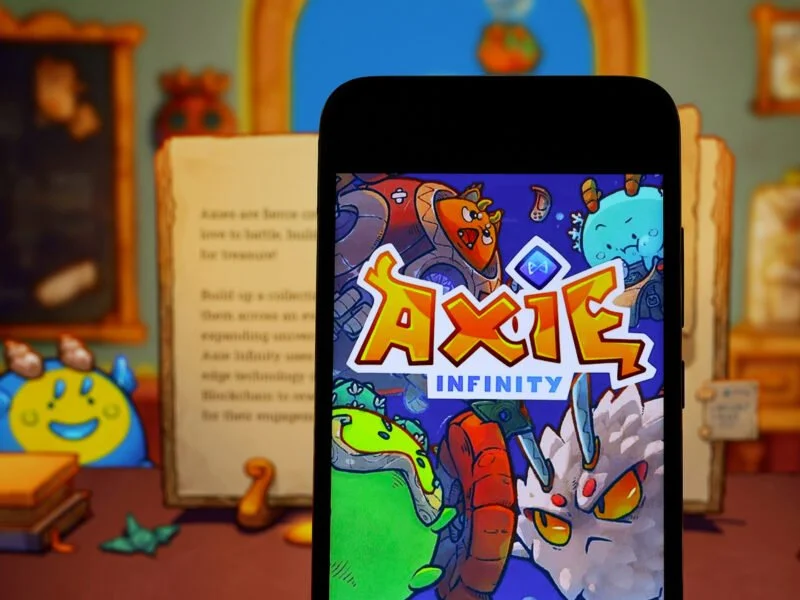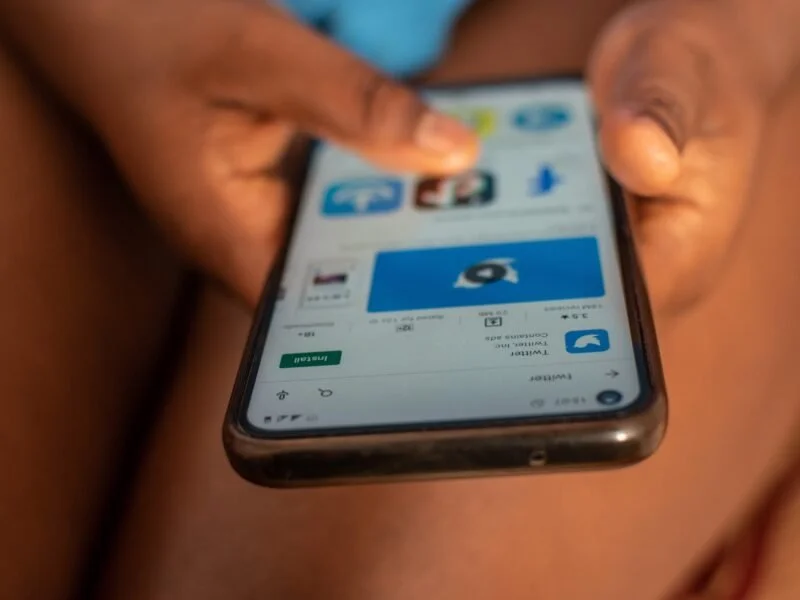
Just Tech Field Reviews
The Just Tech Platform is a dynamic digital resource that aggregates, curates, and distills research-based insight about the relationship between technological development, inequity, and social justice. The Platform is a free resource developed by the Just Tech program of the Social Science Research Council.
In this series of DISCO Field Reviews, developed in collaboration with Just Tech, members of the DISCO Network unpack emerging configurations of technology, difference, and power. From the implicit whiteness of technological wellness, to the colonial history that props up cryptogaming, to better means for building robust archives of Black digital culture; from manifestoes for crip care to multimedia essays exploring digital generation loss and genetic inheritance, the eight reviews in the series showcases the theoretical and methodological breadth of the scholars who comprise the Network.
Recently Published
-

Un/Just Care: Imagining the History (and Future) of Disability, Technology, and Care
By: David Adelman
Taking the supposed “end” of Covid-19 as a starting point, this field review is an examination of technobureaucracies of care. Bureaucracy, the management of bodies from afar, has become essential to the ebb and flow of modern life, even as it remains perniciously invisible. As a corrective to this, and building on the work of critical disability studies, alongside a feminist ethic of care, I center disability within technobureaucracies of care. I argue that the move to evacuate disability technologies out of history and to remove disability and its technologies from the public eye is both a deliberate rhetorical strategy and a consequence of the established infrastructures of care in the United States. Further, that I center disability, its technologies, and its history is both an autoethnographic impulse as a significantly disabled person—and a commitment rendering the messiness of care and its aftereffects, visible. Finally, drawing from the work of disability activism, I invite the reader to reimagine their own relationship to care and crisis, and to imagine different, more equitable, futures together.
Keywords: Disability; Care; Bureaucracy; Embodied Experiences; Inequality
-

Meditation Apps and the Unbearable Whiteness of Wellness
By: Lida Zeitlin-Wu
This field review provides a critical history and overview of the two most popular for-profit meditation apps, Calm and Headspace, which have seen a dramatic uptick in downloads in the wake of Covid-19. I use these apps as case studies to critique what is sometimes called the “wellness-industrial complex”: the multibillion-dollar industry that caters to overwhelmingly white and affluent consumers, often through the appropriation and decontextualization of non-Western spiritual and medicinal practices. As I argue, wellness apps look, sound, and move in a way that claims to be deracinated, but in fact capitalize on a disembodied form of default whiteness by framing personal wellbeing as a fundamentally apolitical enterprise. By looking to the visual, haptic, and auditory design of for-profit meditation apps—and the normative racialized, class-based, and gendered markers they enforce—I show how a sanitized version of “Eastern philosophies,” particularly Zen Buddhism, have become an alibi for the large-scale abandonment of care for those who need it the most. I conclude with some alternative possibilities for how meditation apps might approach the question of wellness by ceasing to erase the political realities of the world.
-

Gaming Blockchain and the Asiatic Forms of Web3
By: Huan He
This field review explores the phenomenon of crypto-games (digital games built on blockchain technologies) and new racialized forms of play-based labor. Through examining Axie Infinity, a crypto-game made in Vietnam and popular in the Philippines, I suggest that there is something “Asiatic” about Web3 technologies and cultures. While narratives of Web3 innovation often focus on an abstract idealization of decentralization, I situate these cultural discourses within the infrastructural decentralization at the heart of global digital networks. As the documentary Play-to-Earn: NFT Gaming in the Philippines will show, it is the representational labor of the Filipinx gamer that plays a central role in the expansion of blockchain.
-

Big Bad Feelings: AI Depression Diagnosis and the Technopolitics of Disability
By: Jeff Nagy
At a time when human clinicians are in short supply, AI tools promise access to mental health care via NLP chatbots, mindfulness apps, and adaptive CBT workbooks. But AI is increasingly also targeted upstream from treatment, at big-data-based diagnosis. For instance, Project Seabreeze, a joint effort between Apple and UCLA, aims to use passively-collected data from iPhones and Apple Watches to diagnose latent depression. This field review addresses systems like Project Seabreeze as an opportunity to think at the intersection of depression, disability, and digital media, with an eye to the logics of translation and scale. Ten years ago, Ann Cvetkovich described depression as a “public feeling,” situating what she calls “feeling bad” as a defining state of life under conditions of neoliberalism, the cumulative result of entangled systems of disenfranchisement and oppression. Tools like Seabreeze transmute depression from a “public feeling” to a one diagnosed at the interface between platform-based big data and the fluid “scalable subjects” (Stark 2018) produced by algorithmic psychometrics. What happens to the political economy of diagnosis in this scalar shift, and in the concomitant translation from DSM-5 diagnostic criteria as understood and used by clinicians to a set of machine learning features? How does the algorithmization of diagnosis crystallize a condition whose only constant is its ever-changing definition (Ehrenberg 2010)? This field review takes up these questions, while considering what this emergent technopolitics of depression might mean for the politics of disability writ large.
-

Field Review #RIP Twitter: The Conditions of Black Social Media Platform Migration
By: Rianna Walcott
Elon Musk’s acquisition of Twitter on October 31, 2022 has left Black Twitter reeling in the wake of over a year of turbulence, with constantly changing affordances rendering the service less and less functional. In response to this upheaval the future of the platform is under question, as Black users debate whether to stay and weather Twitter’s declining functions, or to turn to other platforms that could potentially fill the space left behind following the decline of the social media giant.
This field review frames the history of Black Twitter as both coparticipants in the platform’s design and transgressive reconceptualizers of its intended functions, as a practice of adapting Twitter into a viable home. Using migration as a metaphor, I examine how transmigration (Sharpe 2016)—both the movement across space and the changing of space from one form to another—is a condition of transatlantic Blackness that has mapped onto the digital. Black Migration—both voluntary and involuntary, physical and digital—converts unfamiliar and hostile terrain into a home via transformations that adapt spaces to Black community needs. I argue that processes of transforming social media spaces function as an ownership claim for Black users, and position Twitter as a central platform within a hypernarrative ecology of social networking systems, to question what factors are instrumental in coaxing Black users to social network services to form discursive communities.
Coming Soon
-
We Losin’ Recipes! Building Archives of Black Digital Culture
Kevin Winstead and André Brock explore the growing anxieties around the changing social media ecosystem and, more specifically, the unease of Black social media researchers around increasingly inaccessible or decayed digital cultural data. Addressing this critical juncture for the Internet, Winstead and Brock explore best archival practices and institutional apparatus for the preservation of the digital mundane through two presentations delivered during the Society for Cinema and Media Studies 2023 conference: 1) the case of @Crystal1Johnson, a Russian-controlled account on multiple SNS aimed at creating misinformation during the height of the Black Lives Matter movement’s engagement with the 2016 presidential campaign; 2) the Library of Congress’ efforts to archive Twitter.